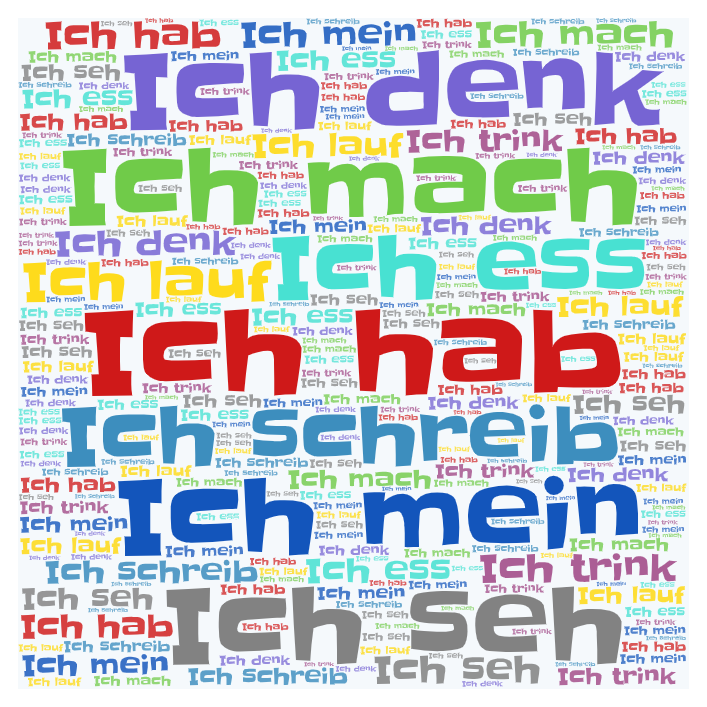Lately my girlfriend asked me about how every day speech in Germany differs from the standard German which she is learning right now.
When speaking, Germans tend to use dative after certain prepositions that require the usage of genitive. They also will switch around words inside of sentences to put more stress on them. Konjunktiv 1 is almost exclusively used in written German while you can encounter Konjunktiv 2 quite often. Germans also tend to use perfect more often than präteritum except for certain verbs.There is also a big influence of dialect which depends heavily on the region that you are visiting.
Let’s look a little bit closer at this and have a look at some examples so you will not be to confused about this when you are visiting Germany for the first time.
We Use Wrong Cases
This might sound strange, as you would expect most of the Germans to speak correctly, but in reality we just do not speak correctly. Worse, we don’t even care about it. This is especially true for the genitive and dative case.
Most Germans don’t even realize the mistakes they make, and often times will correct if you use the right case. It can be a little bit weird but you will quickly get used to it.
Why does this happen? There are multiple reasons for this, but the main reason is that genitive is more and more vanishing from the spoken language. As a result of this, children don’t learn the correct way of speaking, and they fail to pick it up through reading or in school.
Mostly this misuse of genitive happens with prepositions that require you to use genitive after them, but it also may happen with the possessive genitive. In these situations, Genitive gets substituted by the dative.
Of course this sounds very vague so let’s look at some comprehensive examples:
Because of the weather, I stayed at home.
With genitive: (correct German)
Wegen des Wetters, bin ich zuhause geblieben.
With dative: (incorrect German)
Wegen dem Wetter, bin ich zuhause geblieben.
German grammar clearly requires you to use genitive after wegen. Of course, as I am writing about this topic, I am aware of this but I still would use dative in this case, since using genitive sounds very unfamiliar to me.
Let’s have a look at a second example to understand the mistakes Germans can make with the possessive genitive.
Peters Dog is hurt.
With genitive:
Peters Hund ist verletzt.
With dative:
Dem Peter sein Hund ist verletzt.
This kind of mistake is one of the more unusual mistakes when it comes to speaking, but you will still be able to encounter this quite often.
We Often Substitute The Conjunctive by The Present
In spoken German, you will rarely encounter conjunctive 1. Most of the times Germans would just use the present to describe these situations. Using conjunctive 1 excessively will make you sound weird, even for example in an academic environment.
Let’s have a closer look at some sentences to show you what I mean.
I thought he didn’t come.
With Konjunktiv:
Ich dachte, er sei nicht gekomme.
Without Konjunktiv:
Ich dachte, er ist nicht gekommen.
The first sentence will make you sound like a book, while the second sentence isn’t grammatically correct at all. As a German, I would still always use the second sentence, even in some very formal conversations.
While Konjunktiv 1 is rarely used, you should have no reservations about using Konjunktive 2.
Germans Use Untranslatable Words
As every language, the German language also has some particles that have no appropriate translation in English. (there are also words like this, but that is another topic)
The two most prominent particles which you will encounter are doch and halt. While doch is a word which is used by every German, halt is a word that will exclusively get used by the younger generation.
Doch can be the counter to a negative statement like:
A: You didn’t clean up your room!
B: Doch (Yes, I did)
But there are many other uses for this small word. Most of them are hard to learn and you will learn them while you are exposed to native speakers.
The word halt is the imperative of the word halten (= to stop) but, in some cases, it can also be used like the English word just (even though it is grammatically incoorect to do this)
A: So what did you do then?
B: I just left
A: Was hast du dann gemacht?
B: Ich bin halt gegangen.
Another word which is interesting and gets used quite often is tja, which is kind of a verbal shrug.
You will encounter this in some informal situations and often times it will be part of a sentence that indicates Schadenfreude.
We Use Mostly Past Perfect
Germans like to use perfect more than präteritum. This is by no means a general rule, but when speaking, except for certain verbs like kennen (= to know), denken (= to think) or modal verbs, perfect tends to be more dominant.
I would never say sentences like:
Während ich mit ihm sprach…
Als ich nach Hause fuhr…
Ich ging in den Supermarkt…
All of these sentences sound very unnatural and made up to me, even though they perfectly make sense. Whenever you are unsure of which form of the past you should use, just use perfect, and you will be fine most of the times.
This can also be useful when you are a beginner. You can ignore präteritum for a long time, and focus on learning the perfect initally. This will provide you with an easy way to speak about the past, while being able to speak to native speakers without sounding to weird.
We Might Formulate Wrong Sentences
Germans like to switch around words in spoken sentences to emphasize them. This can but doesn’t have to follow the rules of German grammar. Emphasized words tend to be moved to the end of the sentence.
You will often times find yourself listen to some long sentence and only at the end of it you will be able to understand what it is about. This happens naturally with verbs in subordinated clauses, but it is not limited to this and it can happen to other parts of the sentence as well.
I personally like to mention time and places at the end of the sentence, but I think every German has his or her own preferences about this.
Some examples would be:
I’m going to swim tomorrow.
Ich gehe schwimmen morgen (grammatically incorrect)
Ich gehe morgen schwimmen (grammatically correct)
I’m reading in my room right now.
Ich lese in meinem Zimmer gerade (grammatically incorrect)
Ich lese gerade in meinem Zimmer (grammatically correct)
I’m staying at home to study
Ich bleibe zuhause zum Lernen (how I would say it)
Ich bleibe zum Lernen zuhause (grammatically correct)
Of course these example sentences are short sentences, but often times you will encounter this after some long sentences.
Words Can Have No Cognates In Standard German

I wrote about this already in my article about dialects, so if you are interested in reading some more about this topic you should check it out.
There are over 250 dialects in Germany and these dialects contain words that do not have any connection to standard German at all. Depending on what region you are going to visit you will encounter some of these words occasionally.
This happens more frequently in rural regions than in big cities so usually it is not a problem,
but you should be aware of this, especially if you talk to old people.
We Swallow The Endings

When speaking with each other, all Germans will use a slightly changed standard German or their local dialect. (mostly slightly altered standard German)
When speaking this variation of standard German, we especially love to leave out the e of the first person singular.
Ich habe → Ich hab
Ich gehe → Ich geh
Ich nehme → Ich nehm
You will quickly get used to this and adapt it yourself once you visit Germany, so you don’t have to worry about this.
Some Germans also swallow the e in other places of the word like this:
Wir gehen → wir gehn
Wir essen → wir essn
Wir sehen → wir sehn
There are other words which we slightly alter, but since this is heavily dependent on the local dialect, I will not address this here.
Conclusion
There is a lot of difference between spoken German which we use in Germany, and the German that you learn in courses. Of course this isn’t a problem, since every German is able to understand and use standard German (some are more able, some less)
When you are learning German, you shouldn’t worry about this. If you stay in Germany for a longer period of time, you will naturally pick up these things and you will use them without thinking about it.
Some things that Germans use in spoken German, can be a little bit confusing at first, but especially when talking to Germans from a different region, we only make minor changes to standard German.
If you request it, we will always be able to speak standard German with you (even if it feels weird to use this)